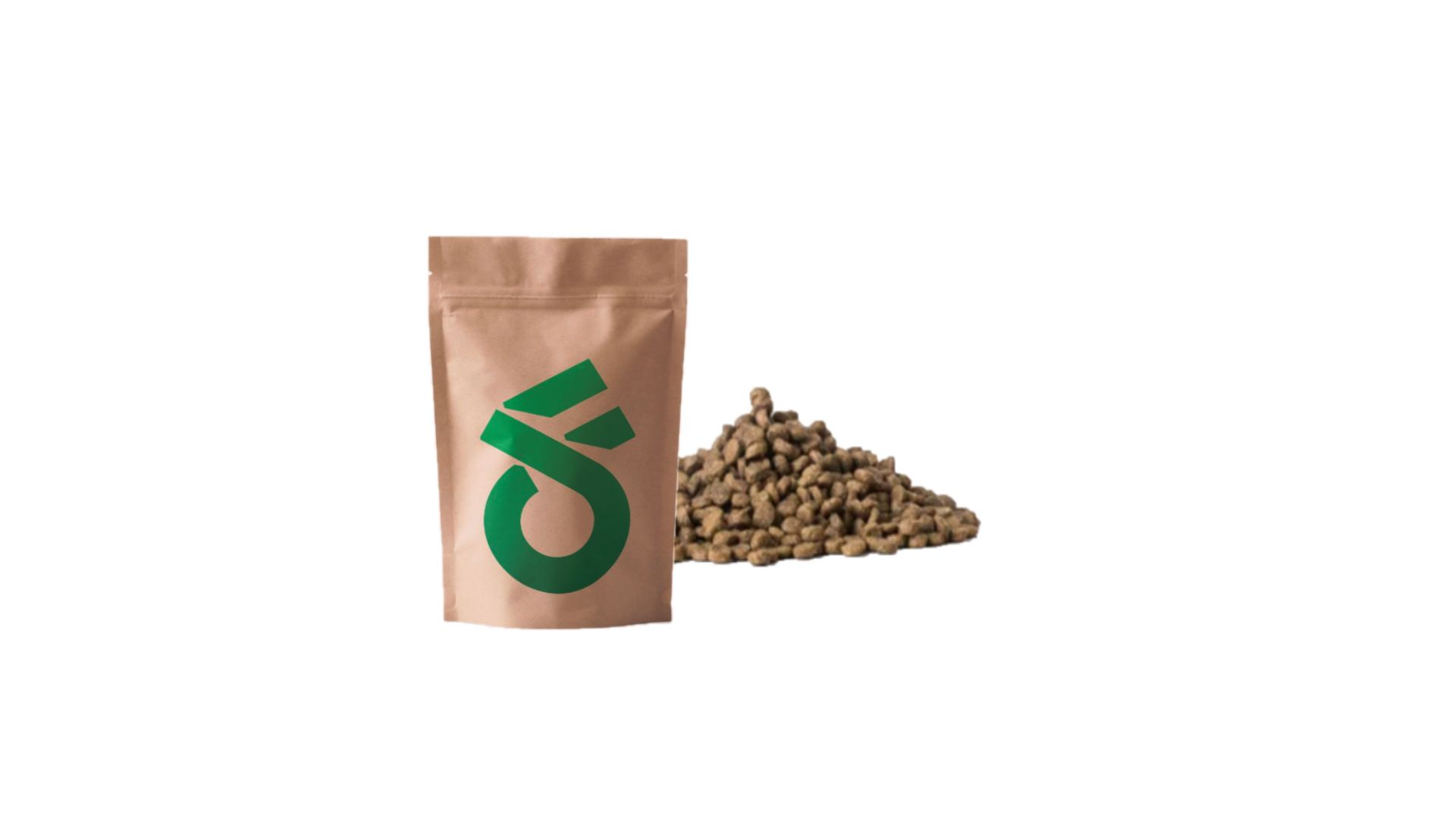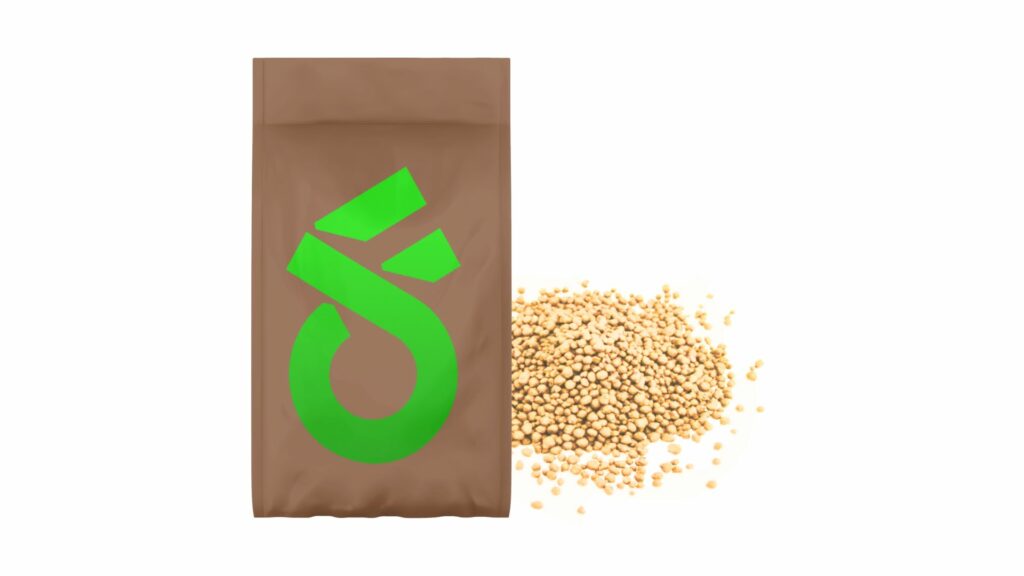PRODUCTS
Breeding insects in an environmentally friendly way to produce flour and derivatives, offering viable protein food alternatives and producing soil improvers to help safeguard crops.
ALPHAFOOD – Crickets Vertical Farming
FEED

Complete feed
Insect meal can offer numerous gastrointestinal benefits to dogs and cats. Its balanced nutritional composition can help improve digestive health and prevent common disorders such as diarrhoea and constipation. The presence of fibre in insect meal can aid proper digestion and promote intestinal regularity in pets.
Insects also contain a balanced lipid profile, with adequate amounts of essential fatty acids such as omega-3 and omega-6. These fatty acids are important for healthy skin and coat in pets. Incorporating insect meal into dog and cat food can help maintain healthy skin and a shiny coat.
In addition, insect meal may contain a variety of bioactive compounds, such as antimicrobial peptides and natural antioxidants. These compounds may play an important role in promoting healthy gut flora in pets, reducing the risk of gastrointestinal infections and supporting a strong immune system.
ALPHAFOOD – Crickets Vertical Farming
FOOD
CRICKET FLOUR
Edible insects and products containing edible insects are considered in Europe Novel Food – Reg EU 2015/2283. Their marketing is subject to authorisation by the European Commission, following an application for authorisation according to the procedure set out in the aforementioned regulation. In May 2021, the European Commission gave the go-ahead for the first Novel Food based on Edible Insects. The first species authorised in Europe was therefore the flour moth, in jargon Tenebrio molitor. In 2021, EFSA then published further positive opinions on other edible insect species, including one on Acheta domesticus. The dossier in question was submitted by a Dutch company, which requested data protection. The opinion was published on EFSA’s website in August 2021. In January 2023, the Vietnamese company Cricket one obtained authorisation to market products based on Acheta domesticus. As of today, Alphafood is preparing the scientific dossier required by EFSA for the authorisation, so that it can obtain the necessary authorisation by 2025.

ALPHAFOOD – Crickets Vertical Farming
AGRICOLTURE

FERTILISER
Cricket waste represented mainly by faeces ‘called frass’ is rich in nitrogen, an element that is often limiting in agricultural soils. The use of frass not only enriches the soil by providing nutrients and organic matter, but also helps to counter the phenomenon of desertification in our soils, which are currently lacking in organic matter. A very important feature of insect frass is that unlike cattle or pig manure, which require minimal maturation time before possible use in the field, Alphafood’s frass is ready to use, thanks to its low moisture content and the stability of its compounds.
The use of frass in agriculture, therefore, can be a viable natural alternative to the use of traditional substances and its application would further increase.
